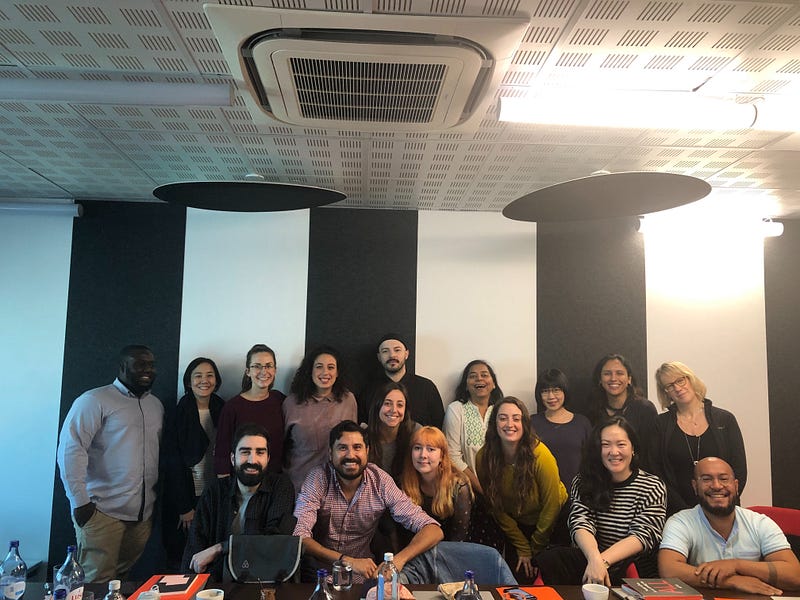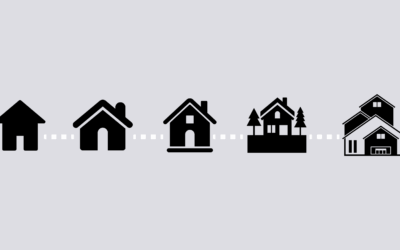This interview is part of our Diversity in Tech series in partnership with All Raise, Anitab.org, Blavity, Grid 110, and Latinas in Tech, a coalition effort to champion diverse representation in the tech industry. Read more about this initiative here, and download images from the Diversity in Tech collection here.
Crystal Acevedo is a Diversity, Equity, and Inclusion (DEI) program manager with experience in the research, nonprofit, and corporate worlds. She is passionate about making workplaces everywhere more equitable and inclusive for underrepresented folks, and most recently supported DEI efforts on the Policy and Communications team at Airbnb.
We caught up with Crystal to learn more about her career path, her work, and how community can help support a more inclusive tech industry.
Hi Crystal! Tell us about yourself, how did you get to where you are today?
I studied psychology in college, but wasn’t sure what I wanted to do post-grad until relatively recently. It’s always been important to me to use my skills and experience to support underrepresented groups, but I struggled for a long time to figure out exactly how to focus this energy. Before working in tech, I worked in research and then in the nonprofit world on the resilience initiative at the Sheryl Sandberg & Dave Goldberg Family Foundation (SGFF).
As a queer woman of color, I’ve always looked at the world through a diversity, equity, and inclusion lens and have been outspoken about it, including in the workplace. But it wasn’t until I got together with some of the other women of color at SGFF to co-found the DEI team that I realized how passionate I am about making workplaces everywhere more equitable and inclusive.
Excited by this newfound sense of purpose, I left SGFF and found my first DEI-focused role at Airbnb, where I supported the Policy and Communications team’s Diversity & Belonging Leadership Council. I was unfortunately part of the COVID layoffs earlier this year, but loved the work and my time with that team. These days I’m volunteering with Latinas in Tech on the planning of LTX Fest, connecting with other underrepresented folks in tech, and looking for my next opportunity in the DEI space.
What inspired you to pursue a career in the tech industry?
Living in the Bay Area, I saw a lot of opportunities in the tech industry, but was keenly aware that marginalized folks do not have equitable access to these opportunities, and often don’t feel like they belong even if they do get hired. I decided to pursue a career in DEI to make sure that underrepresented folks are being sought out and seriously considered for opportunities in tech, and also feeling welcome, supported, and safe once they join the workplace. I also want to be a resource to others who are first in their family to go to college or work in tech, and to lift other marginalized folks up with me as I progress in my career.
What have been some of the most memorable and impactful projects you’ve worked on so far?
Co-founding the DEI team at the Foundation was definitely a highlight for me — I had the pleasure of working alongside some brilliant women of color as we formalized our efforts to make the Foundation as equitable and inclusive as possible. As part of this team, I created a guide to help project stakeholders be more inclusive in their work. The guide educated the broader SGFF team on the issues affecting various underrepresented groups, and helped stakeholders to think about their projects through a DEI lens from the planning stages. I think it’s important to have this lens anytime you’re creating something new so that DEI is built into the foundation of whatever you’re building — whether it’s a campaign or a company.
During my time at Airbnb, I helped the Policy & Communications team establish its global Diversity & Belonging Leadership Council, which launched in 2019. I helped the inaugural Council to formalize its operations and create a transition document to guide future councils. With this foundation in place, I further helped set the 2020 Council up for success by planning and facilitating an international offsite where I guided them through the strategic planning process for the year. I also had a chance to partner with leadership to make diversity and belonging team priorities. I analyzed my team’s culture survey to identify our areas of improvement, and worked closely with our VP and Directors to craft and roll out a team-wide belonging pledge. The pledge incorporated DEI training, an inclusive hiring guide, and a mentorship/sponsorship piece, among other components. We also tied some of the commitments to leaders’ performance reviews to create accountability.

What are some of the greatest opportunities you see right now to drive meaningful change when it comes to more equitable representation in tech, and what role does community play in supporting a more inclusive digital ecosystem?
As a starting point, companies need to invest in the growth and advancement of the underrepresented talent they already employ. Making sure employees of color — and particularly Black employees — have access to mentorship, sponsorship, and professional development opportunities is key to their advancement and to the diversification of management and leadership.
In terms of the role of community, I think community outreach is critical in supporting a more inclusive ecosystem. Companies need to prioritize building and nurturing relationships with organizations for underrepresented folks — they should be partnering with HBCUs, community groups, organizations for underrepresented folks in tech, etc. This community-building will ensure that they have a diverse talent pipeline when it comes time to hire. But they should be careful to ensure that these partnerships are a two-way street where they are giving community partners as much as they are taking, if not more. It’s also critical that companies be actively working toward building a more inclusive workplace so that their new hires from underrepresented groups are coming into a supportive environment where they feel like they belong.
At Noun Project, we believe visual language has the power to shape, reinforce and change perceptions. What are your thoughts on why diverse visual representation in tech is so important to helping change the status quo in the industry?
It’s important for marginalized folks to see themselves represented everywhere they look because you can’t be what you can’t see — including in tech. If you don’t see people who look like you visually represented, you’re made to feel like you don’t matter or belong in a space.
Companies should absolutely treat diverse visual representation as the standard rather than a nice-to-have. But they also need to ensure that they are doing the work to increase diversity and foster a culture of belonging in their workplace — otherwise the diverse visual representation is an empty gesture.
Looking to the future, what inspires you and what initiatives are you most excited about right now?
As I look to the future, I feel inspired and empowered by all of the remarkable women of color who I know are doing powerful work in the DEI space. I’m also inspired by the work of Collective — A DEI Lab. This Black-owned, queer-owned DEI consultancy’s human-centered approach and focus on long-term, transformational change are a breath of fresh air.
As far as current initiatives, I’m excited about how many companies are hiring for full-time DEI roles rather than continuing to put their DEI work on employee resource groups (ERGs) and underrepresented talent. I’m even more excited about companies like Justworks who are starting to recognize and compensate ERGs for their additional labor — I hope that this becomes the norm.
What advice would you give to people currently navigating the path to a future career in tech?
Don’t be afraid to ask for help, whether it’s at work or in your job search. I think a lot of marginalized folks in particular feel like they have to do things alone in order to really prove themselves. I’m here to remind you that you are worthy and asking for help is not a sign of weakness.
In the same vein, you should always be building your network by attending events and proactively reaching out to people on LinkedIn. Networking can feel uncomfortable at first, but it’s incredibly important for career-building and gets easier with practice. If you’re a member of a marginalized group, you should find and join organizations for underrepresented folks in tech — these are a great source of community and support.
And finally, as you progress in your career, don’t forget to use your influence and resources to pay it forward, especially to underrepresented folks. What’s the point of success if you can’t share it with others?
About Latinas in Tech
Latinas in Tech is a non-profit organization working to rebuild the tech industry so that Latinas are well-represented throughout all levels of the ecosystem. The group is comprised of more than 10,000 women, representing more than 23 countries, working at more than 200 of the top technology companies. The group began in Silicon Valley in 2014 and has since then expanded to 13 cities and states: Atlanta, Austin, Boston, Chicago, London, Los Angeles, Mexico City, Miami, New York City, Sacramento, Seattle, Utah, and Washington DC. Latinas in Tech focuses on 3 key pillars: professional development, recruiting, and mentorship. For more information, visit https://www.latinasintech.org.




